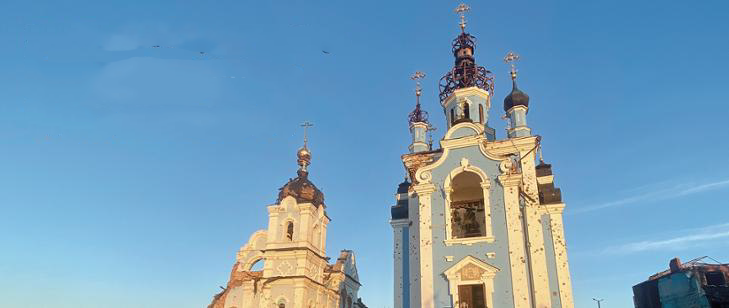Guest Blog by Michael Stock –
Freedom
When I was working at the BBC in London in 2005 I began my training as in-house leadership coach with Sir John Whitmore, a pioneer from motor-racing and performance coaching. Writing in 1997, he warned “that growth and greed is, in the short term, destroying lives, our livelihood and threatens to destroy life itself … because most people, most business people in particular, choose to close their eyes to the environmental impact of their actions” i
Now, quite apart from the alarm at miners’ increasing country-sized footprints, adverts for cryptocurrencies like bitcoin can be found on the sides of London buses and now hot news again. Second thoughts from Elon Musk, People Bank of China and ECB saying they are not real currencies, after BoE warned that ‘cryptos’ have no intrinsic value (unlike gold?) so “buy them only if you’re prepared to lose all your money”, meanwhile in the US the IRS and other tax authorities are clamping down with new reporting. The US Fed and other central banks are working on digital versions of their own currencies, including the UK Treasury recently launched a Central Bank Digital Currency Taskforce.
Perhaps price volatility, after a good long run won’t dent the enthusiasm from crypto-coiners, particularly amongst those worried about inflation, burned by the Financial Crash 2008, who learned not to trust the system or who were doomster-fans of William Rees-Mogg’s ‘The Sovereign Individual – Mastering the Transition to the Information Age” (1997), a manifesto for a future, where increasingly autonomous individuals and bankrupt, desperate governments will confront one another, across a new divide. Apparently this inspired the founder of PayPal to lead the ‘prepping for the apocalypse’ rush to NZ – ‘the Future’ – reported by Mark O’Connell in the Guardian (15 February 2018). The book’s author, Lord William Rees-Mogg was a distinguished previous editor of The Times, and father of Jacob, currently Conservative Leader of UK House of Commons.
What all this means for crypto communities, and NFTs, from Beeple high-end art to Zed Run ‘digital horseracing’, will take time to work through, with unpredictable winners and losers, while the carbon meter ticks up, and up.
Interesting for blockchain, the technology which underpins crypto, is Gillian Tett – who predicted the 2008 financial crash, thanks to her training in Social Anthropology – writing in the Financial Times, (April 8, 2021) that ‘Blockchain may change equity trading for good’. In a small pilot, Credit Suisse and Nomura cut out America’s DTCC that normally settles stock trades, with cheaper and faster settlements using blockchain, in hours rather than days. Gillian Tett says “I’d bet hefty sums in any currency, that non-bitcoin innovations will eventually matter far more”. Piper Sandler, an investment bank, guesstimates that there are already around 4000 financial assets and processes operating on blockchain tech, and DTCC is now conducting internal experiments with blockchain itself. Meanwhile a growing number of smaller countries, from Salvador to Tanzania to Singapore see a future with their smart cities testing the technology and trading coins.
Why Donate Crypto Coins?
Why would anyone – or any Ultra High Net Worth family – consider giving away valuable coins like bitcoin, or ethereum? Well, if you think of crypto as a semi private peer-to- peer currency that gives you some options, you could spend a few coins on a private charter with jet-hire company PrivateFly, or head off to the races, like Frank Partnoy describing in the Financial Times (17 July, 2021) how he set up a ’digital stable’ with Zed Run, and donated his winnings to Thoroughbred Rescue, which saves racecourses from slaughter.
On the other hand, if crypto for you is an asset class, and you got in early, you have some different calls to make. If you are worried about volatility or bubbles, do you switch between bitcoin and ethereum or one of the new coins? Or get inspired by Sandra Ro, featured by Eva Szalay, currency correspondent, in the Financial Times (June 14 2021) who made a substantial fortune from bitcoin, moved on and is now enjoying life as chief executive of Global Blockchain Business Council, a Swiss non-profit.
What if striking crypto-gold means too much Bitcoin and an unbalanced portfolio? Do you swap for some other assets like NZ or Dubai property, or ‘hold-on-for-dear-life’, what Eva Szalay calls the ‘hodlers’.
Nice problems to have, some might think, but what is ‘enough’, and what about divorce, taxes and mortality? No doubt about the latter two.
The financial press is running more articles on ‘digital-divorces’ and the tricky question of whether a spouse might be hiding coins in divorce settlements. Courts demand full disclosure so hiding crypto carries big risks, though tracking down secret stash can be a challenge for divorce lawyers.
So why donate crypto-coins?
- The family office decided we have more than enough, actually.
- It frees up my time, for something more interesting to me
- Maybe one less thing to worry the divorce lawyers
- It’s really tax-efficient, especially in the US
- My legacy, and being a ‘good ancestor’
How to Donate Crypto Coins?
Although some retail banks bar their customers from using their accounts to buy bitcoin and other cryptocurrencies, there is no shortage of established charities and good-causes encouraging coin donation.
In the UK, the Royal National Lifeboats Institution were one of the first to launch a dedicated bitcoin donation channel with impressive comprehensive FAQs.ii
Also in the UK, the Charities Aid Foundation published excellent videos and discussion papers on what cryptocurrency and blockchain technology means for charities, and their supporters.iii
Fidelity Charitable makes donations easy to set up and explain the tax benefits of bitcoin donationiv and TheGivingBlock use their technology platform to connect coin donors with nonprofit good causesv
So, although regulators, like Britain’s Financial Conduct Authority, have concerns about money laundering and US Senator Elizabeth Warren has railed against the ‘wild west’ of crypto markets, if you have coins, and want to donate, it’s easy and efficient,
COPs
Almost all of us have heard about COP26 in Glasgow this November and many know about the Biodiversity COP15 due in Kunming. Mark Carney, UN Special Envoy for Climate Action and Finance gave evidence to the UK Treasury Select Committee on 5th July.vi He spoke of mainstreaming finance for net-zero, stranded assets, the Glasgow Financial Alliance and that $78bn so far had been pledged, (including $10bn in private finance) towards the UN $100bn target for Climate Finance for adaptation in the G77 and vulnerable communities.
Cryptocurrencies are now huge markets, with a combined value of $1.6tn, according to Eva Szalay, currency correspondent, Financial Times (June 14 2021).
Sir John Whitmore’s 1997 book was sub-titled, ‘Business Changes and Personal Choices’. Now, as Mark Carney told the Treasury Select Committee on 5th March, ‘we have left it extremely late’ to act effectively on climate and biodiversity.
What will crypto-holders choose to do with the immense resources at their disposal?
Notes:
i John Whitmore ‘Need, Greed or Freedom. Business Changes and Personal Choices’ Element 1997
ii https://rnli.org/support-us/give-money/bitcoin-donations
iii https://www.cafonline.org/about-us/caf-campaigns/campaigning-for-a-giving-world/future-good/blockchain
iv https://www.fidelitycharitable.org/giving-account/what-you-can-donate/donating-bitcoin-to-charity.html
v https://www.thegivingblock.com/
vi https://www.parliamentlive.tv/Event/Index/8faa6cfc-907c-4617-9242-55fa93b10d20







